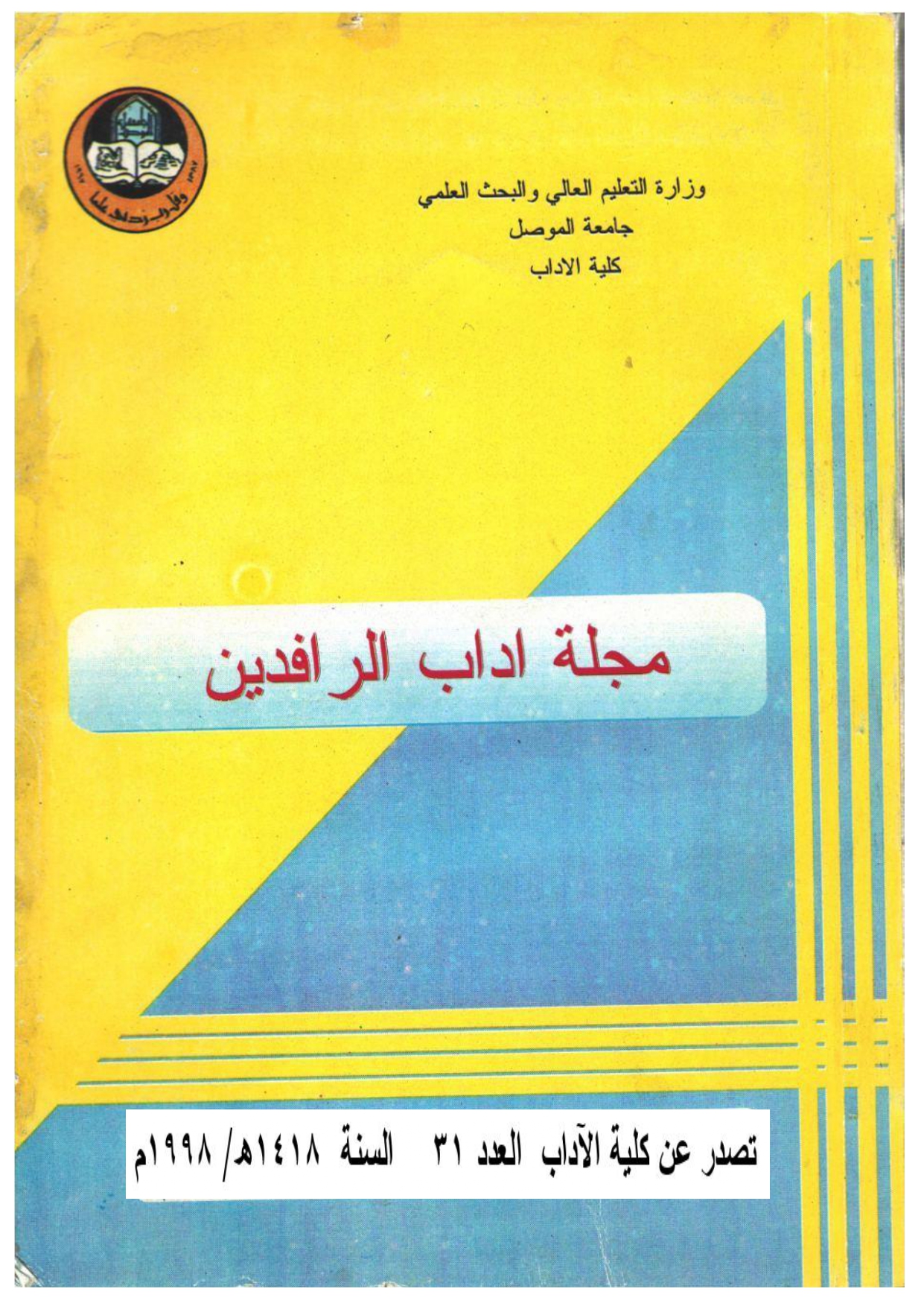Abstract
This research aims to reveal an important aspect of creativity in the literature of the Jordanian poet Haider Mahmoud, which is represented by talking about self-criticism (criticism of rulers and peoples) in his poetry. Perhaps it is useful to point out, before starting to talk about our poet, that this subject (self-criticism) was and still is in our modern Arabic poetry a prominent feature that distinguishes most Arab poets who have always believed in the importance of fulfilling their noble mission, and realize that literature is a living image of the society to which they belong, and that Commitment is a huge consequence not to be ignored by any means, and they have to bear this liability if they want to be committed ... and to communicate with what is around them and to be close to people and to portray all their emotions and prey in the crucible of their feelings and needs, and not be isolated from the problems of their time in order to be able to penetrate into the depths of These problems with their feelings, thinking, and culture, so that they can participate in the search for the solutions you need.
Keywords
emotional criticism
Hadiths
Nakba
self-criticism
Abstract
یهدف هذا البحث الى الکشف عن جانب هام من جوانب الابداع فی ادب الشاعر الأردنی حیدر محمود ، والمتمثل بالحدیث عن النقد الذاتی (نقد الحکام والشعوب) فی شعره. ولعل من المفید أن أشیر وقبل البدء بالحدیث عن شاعرنا الى ان هذا الموضوع (النقد الذاتی) کان وما یزال فی شعرنا العربی الحدیث علامة بارزة تمیز معظم الشعراء العرب ممن ظلوا یؤمنون بأهمیة اداء رسالتهم النبیلة ، ویدرکون ان الادب صورة حیة للمجتمع الذی ینتسبون الیه ، وأن الالتزام تبعة ضخمة لیس الى تجاهلها من سبیل ، وعلیهم أن یتحملوا هذه التبعة إذا أرادوا أن یکونوا ملتزمین ... وان یتصلوا بما حولهم ویکونوا قریبین من الناس ویصوروا کل عواطنهم وجوارحهم فی بوتقة مشاعرهم وحاجاتهم ، وألا یکونوا بمعزل عن مشکلات عصرهم لیتمکنوا من النفاذ الی اغوار هذه المشکلات بشعورهم ویفکرهم وثقافتهم لیشارکوا فی البحث عما تحتاج الیه من حلول.
Keywords
احادیث
النقد الذاتی
النکبة
نقد انفعالی
